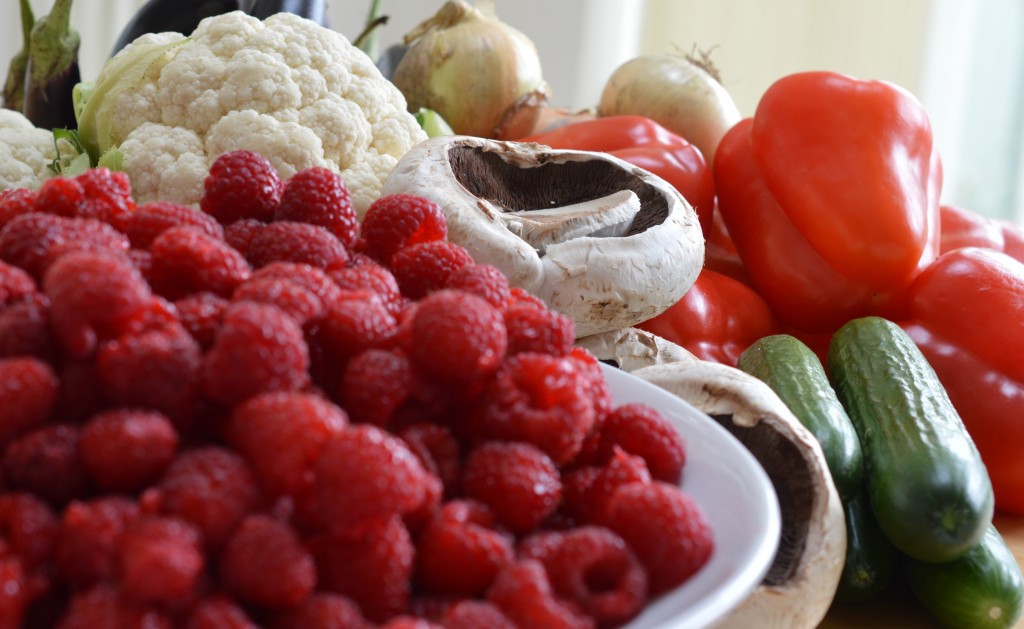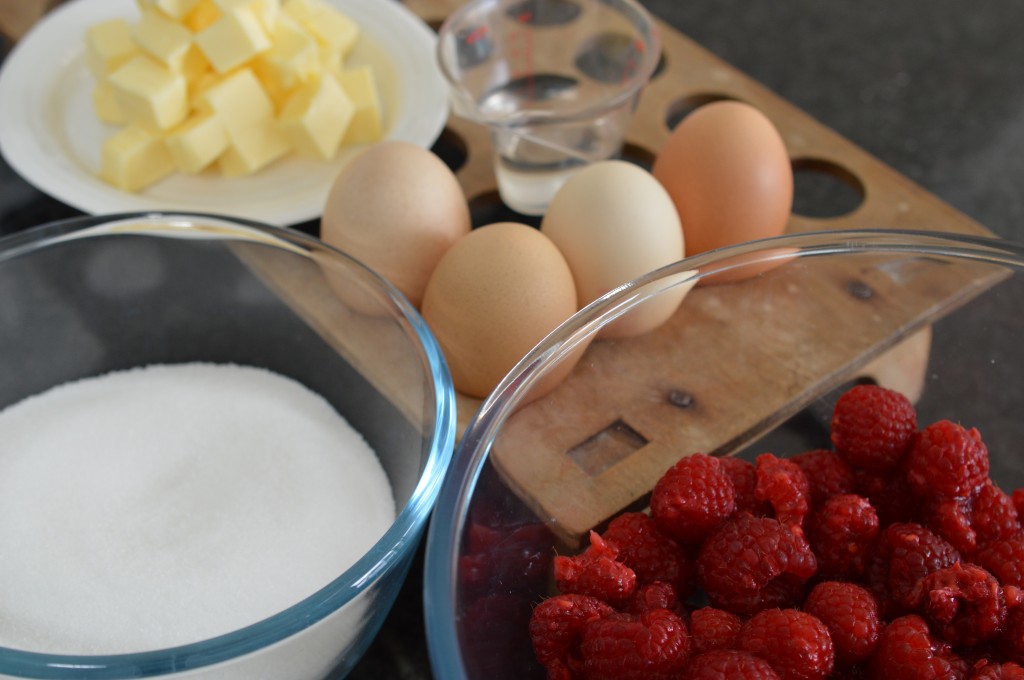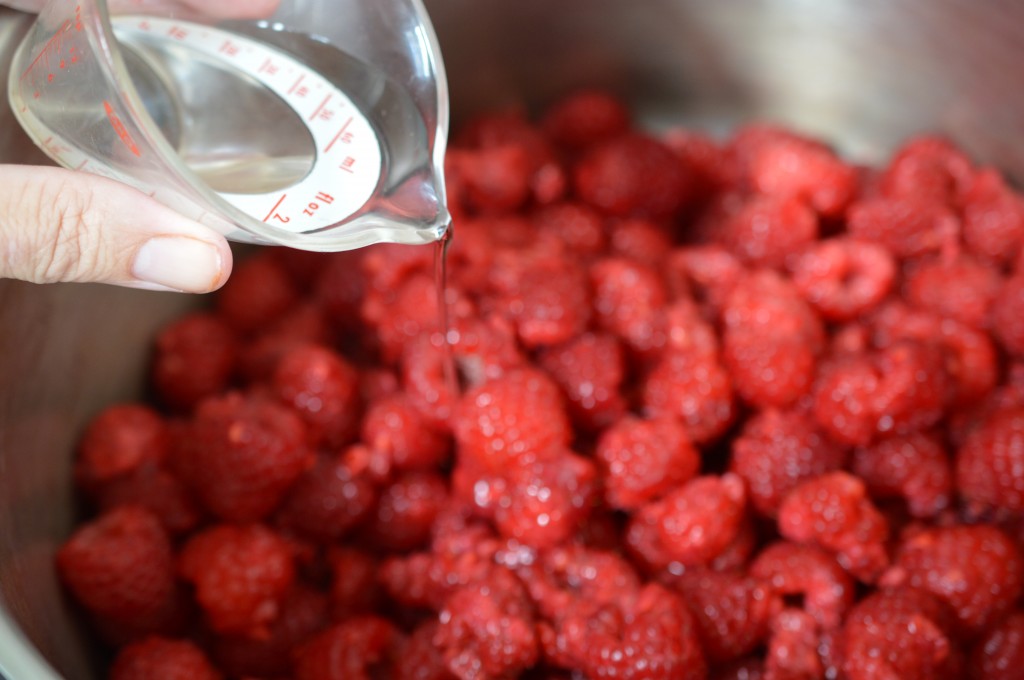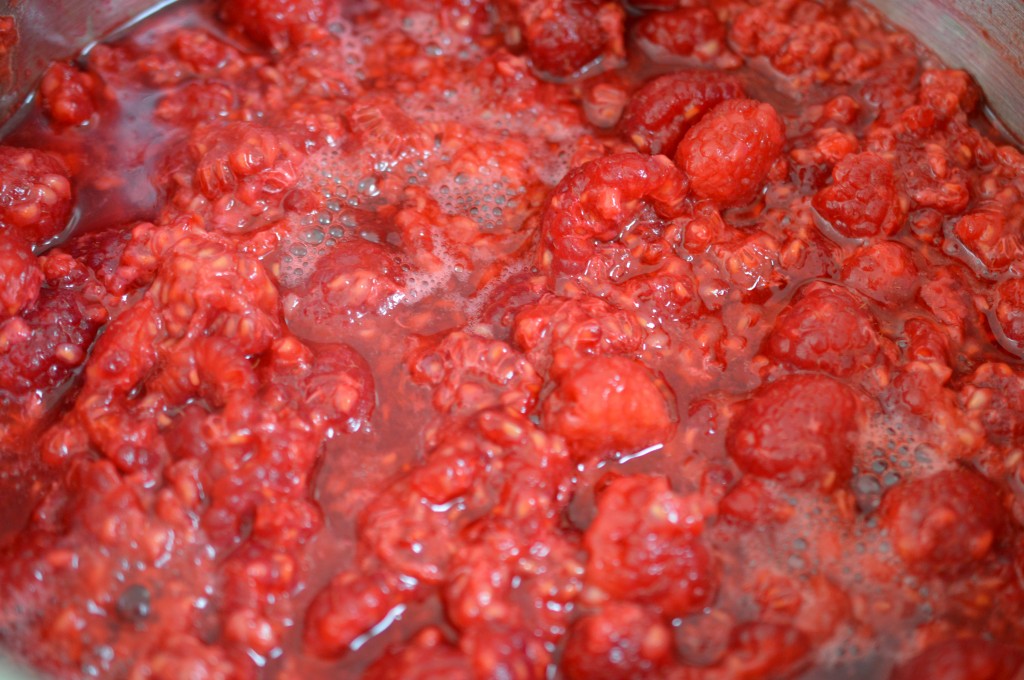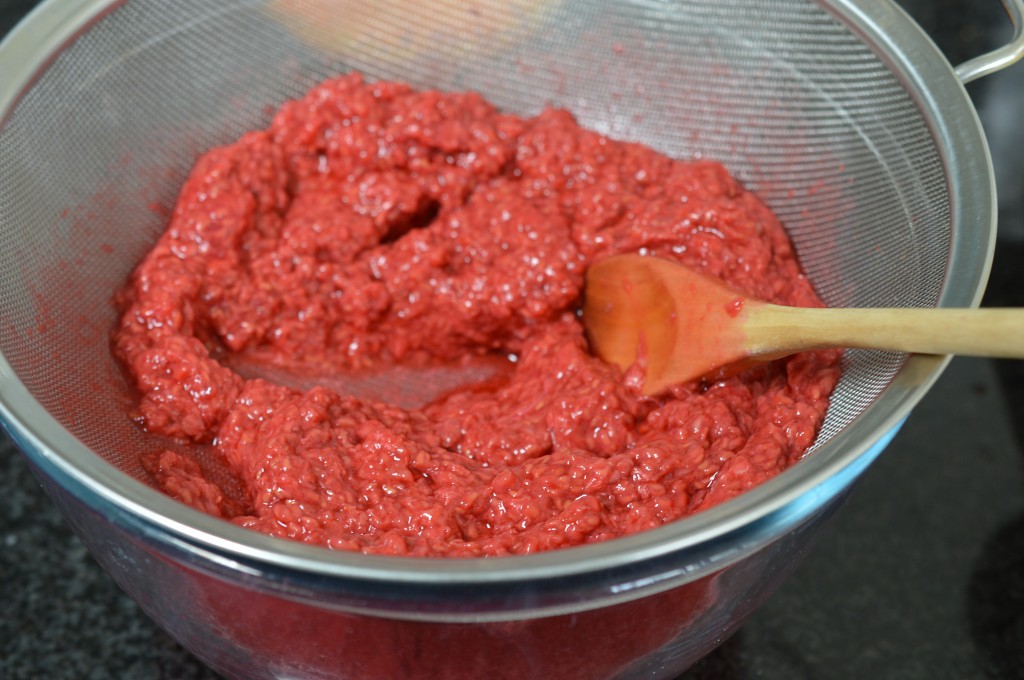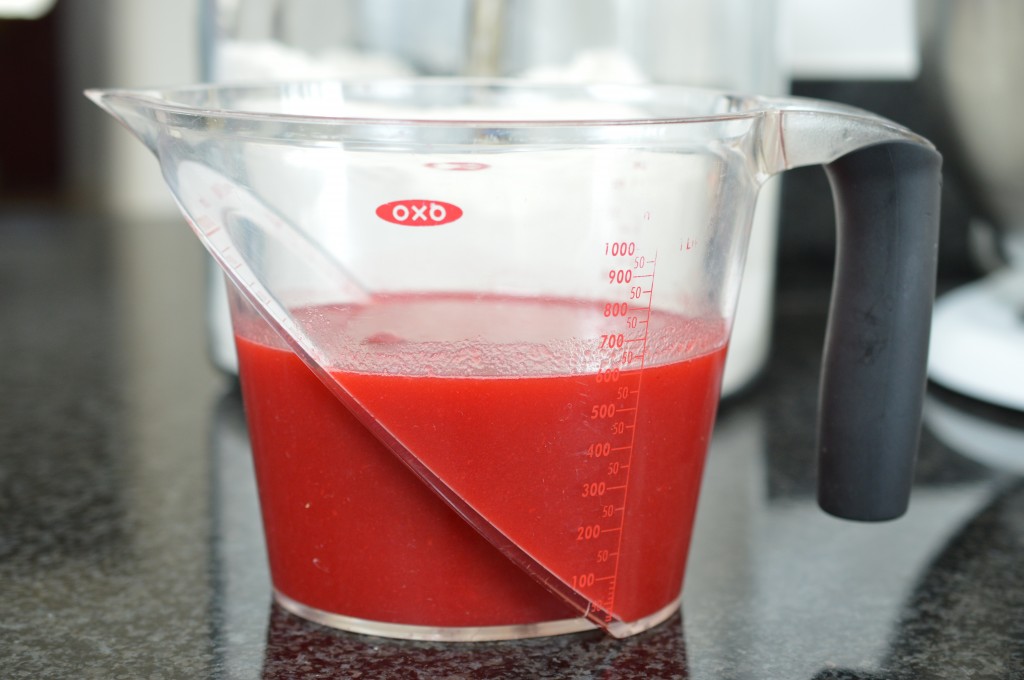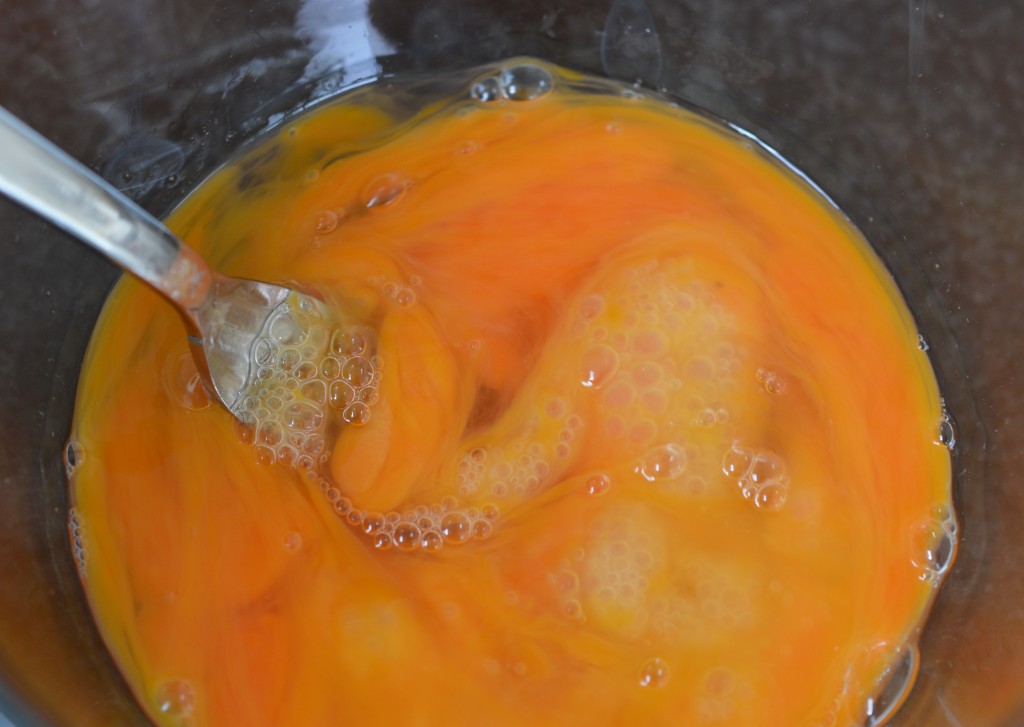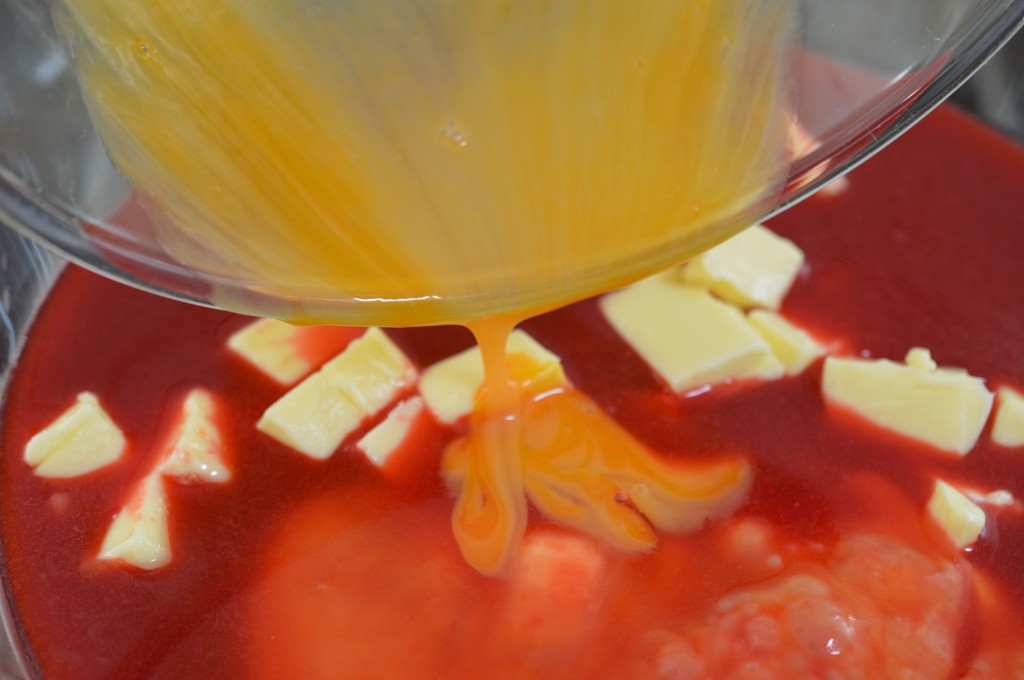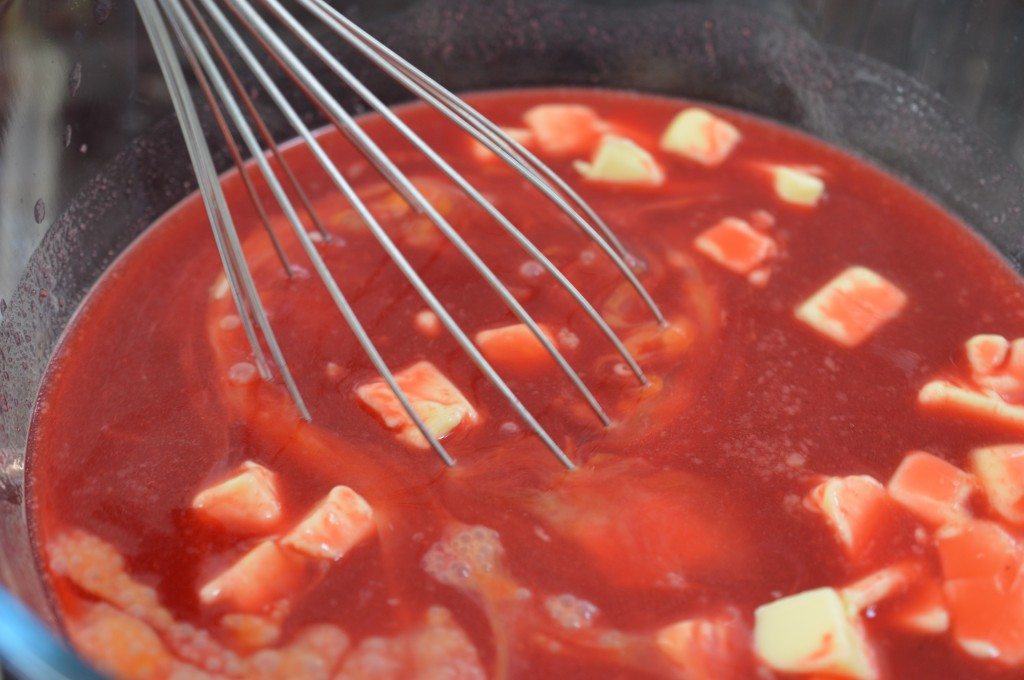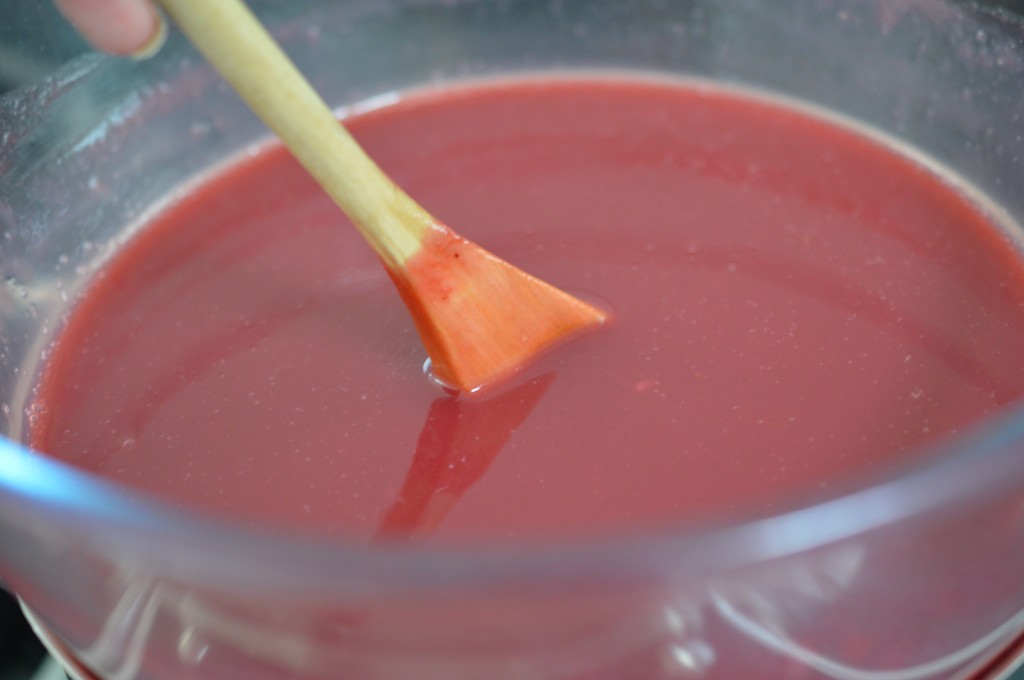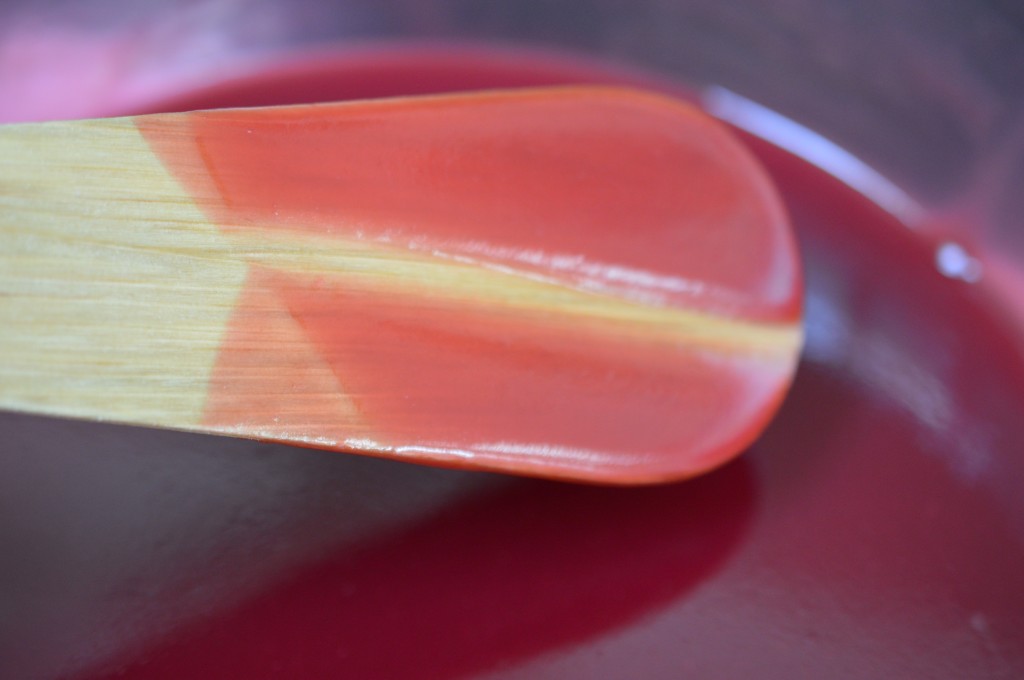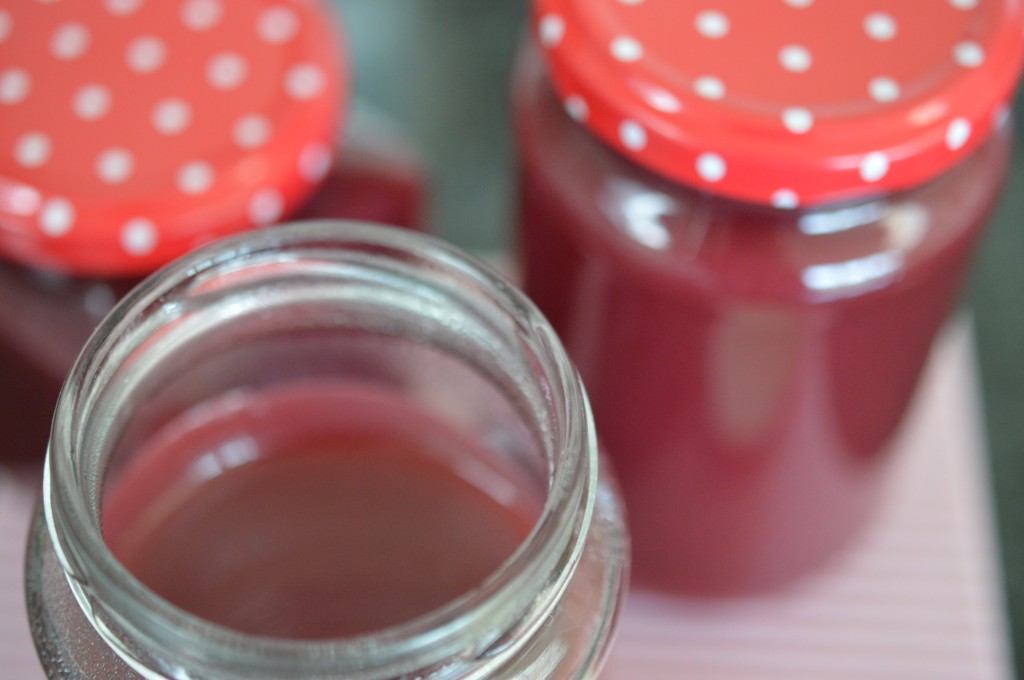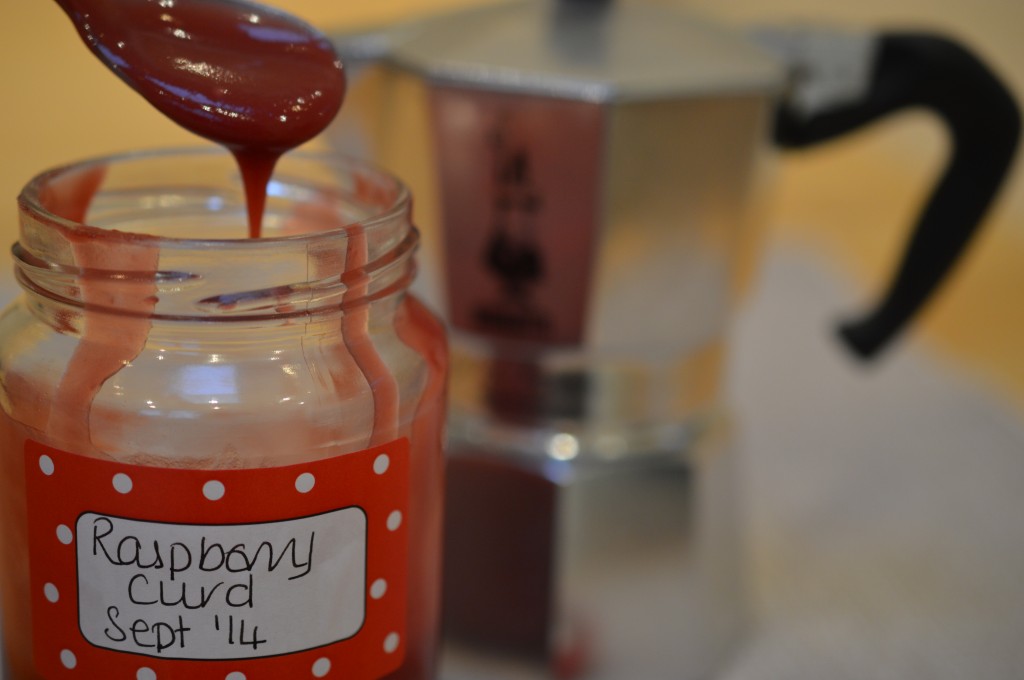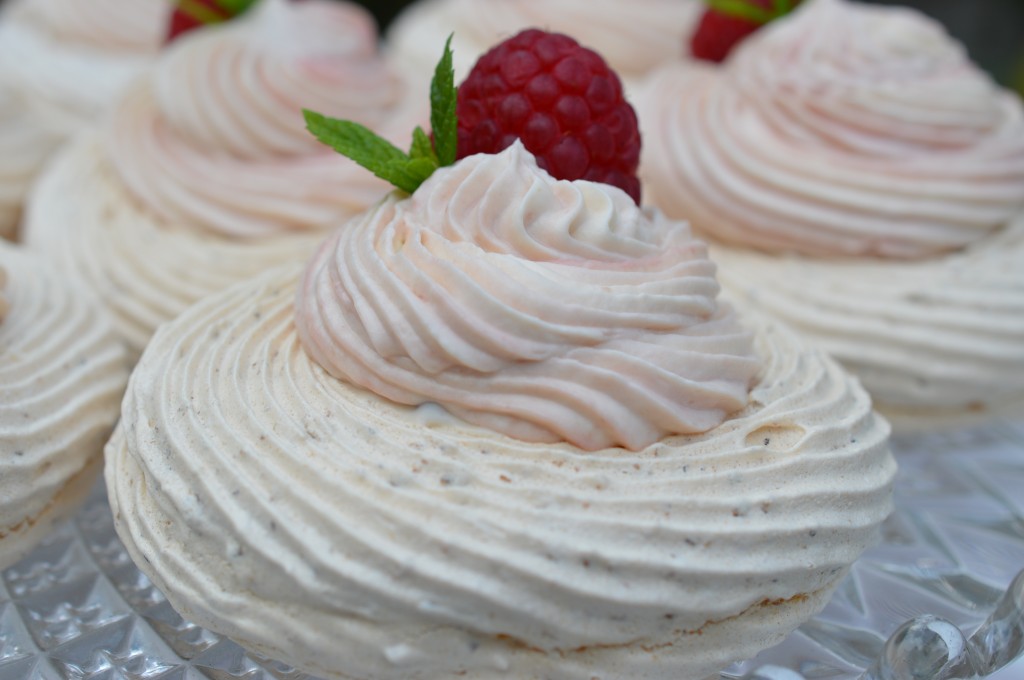Raspberry Curd
Fresh raspberries don’t travel well – which makes them an expensive fruit. I look at those plastic boxes of single layer fruit in the supermarket and wince. Rarely buy. They do, however, freeze fantastically and the bags of frozen berries are so much cheaper. When I’m making jam I go in that direction, but there are times when a fresh berry is needful.
I suppose the optimum situation would be if I grew them myself, but having watching Monty Don (presenter on BBCs ‘Gardeners’ World’) performing advanced knotting on his raspberry canes I do wonder whether a girl whose wellington boots have a wedge heel would be up to the job.
All of which made market day this week so much more exciting. Yes, they are a little on the ripe side and for the benefit of my photo I sacrificed a few! Raspberries really don’t like to be artistically stacked, do they? Immediately after this photo was taken I carefully laid them out on several plates and tucked them away in the fridge – because that’s the other annoying thing about them, they don’t keep well ‘in the raw’ either.
Almost immediately on getting home with my hoard, my mind turned to vodka. I have a few steeping now and you can follow their progress here. It’s a bit of an annual event. Eventually the sozzled berries will find their way into a Christmas trifle and the raspberry vodka will become a summer indulgence.
One cup of strong coffee later and I began on raspberry curd. I won’t lie. There’ll be a moment during this process when you’ll lose the will to live. Making it requires constant attention and, much like risotto, I find I have to be in the right mood to make it. The reward is a reasonably small quantity of a quite extraordinary tasting preserve. If I tell you it tastes of ‘raspberries’ I’ll sound daft, but that’s exactly it. It tastes of raspberry more than a raspberry …
You begin by putting your raspberries in a saucepan and adding a little bit of water. I’m using 1kg (that’s 2¼lb) of raspberries and I add just a couple of tablespoons of water.
Bring the whole thing to boiling point and then turn down the heat and simmer for about 5 minutes. You want the fruit to be entirely soft and mushy, so keep going if yours are not ready.
Tip it into a fine sieve and with the back of a wooden spoon push as much of the pulp through as possible. You’ll never get it all through. When you’ve done your reasonable best, discard what’s left in the sieve.
And here’s a first, I’ve never measured what ends up in my bowl. It’s 600ml.
Have everything ready. Pop your clean glass jars into a low oven to sterilise. Have the white granulated sugar measured. Salted butter, diced small. 4 eggs, beaten.
That’s the ‘thing’ about making raspberry curd – it doesn’t like to be left. Since you are going to be here for a while you might like to put on the radio ..? I’m addicted to ‘audible.co.uk’ and have story tapes at the press of a button. Currently listening to Georgette Heyer’s ‘The Quiet Gentlemen’.
Put the raspberry juice into a large bowl and suspend that over a saucepan with a few centimetres of barely simmering water, unless you are one of the lucky few who own a double boiler. If so, use that. Then you add the sugar, diced salted butter and the beaten eggs.
Get your whisk in and gently stir. You are looking for the butter to melt and for there to be no gritty, undissolved sugar. Once all is smooth, swap your whisk for a wooden spoon.
And continue to stir. Keep the liquid moving. That’s really all there is to it. Eventually the egg yolks will thicken the mixture and you will have raspberry curd.
Only there are a few things that can go wrong:-
- The mixture may curdle. At the first sign of it, whip the bowl off the heat, cool everything down rapidly (sit the bowl in some cold cold water) and stir the life out of it. Berate yourself for your lack of vigilance while stirring. I think you’re allowed to swear quietly – but just the once. As soon as all is calm again you can look to the causes. It may be you’ve had the bowl touching the water. Well, don’t do that again! Or you may need to lower the temperature beneath your saucepan as the heat is too fierce.
- The mixture may not thicken. If you’ve been going for half an hour you probably should increase the heat below your pan. Just don’t be tempted to add any cornflour as that diminishes the raspberry hit in the finished curd. If you’ve really got a problem, then add a single egg yolk and keep stirring.
Eventually you reach the point where the curd will coat the back of a spoon. If this is your first time making raspberry curd you should know that it will thicken as it cools, so this isn’t the consistency you’ll end up with. I give the mixture a quick sieve at this point to remove the white stringy bit that holds the egg yolk to the white.
Then it’s straight into warm, sterilised jars. Smaller is better than large jars because a fruit curd doesn’t keep for long. Unopened you’ve probably got about 3 months. Once you’ve started a jar you really ought to eat it within the week. Opened or unopened, store in the fridge. I’ve never had a problem getting through it – but if you think you might, it freezes brilliantly.
Like raspberry anything, this curd has a natural affinity with cream and dark chocolate. It’s good stirred through Greek yoghurt and frozen as iced treats. Lovely in a roulade. Layered with buttercream in a Victoria sandwich.
But, me, I’m heading in this direction …
Raspberry Curd – Makes five 4oz jars.
- 1kg/2¼lb raspberries
- 450g/1lb white granulated sugar
- 115g/4oz salted butter, diced small
- 4 large eggs, beaten
Place the raspberries in a saucepan with 2 tablespoons of water and bring to the boil. Reduce the heat to a simmer for about 5 minutes until your fruit is extremely soft and sieve-able.
Using the back of a wooden spoon push as much of the fruity mixture through a fine sieve as you can. Discard the pips. Place the smooth fruit in a bowl on top of a saucepan of simmering water.
Add the sugar, butter cubes and beaten eggs. Over a low heat, whisk until all the butter has melted and the sugar dissolved. Swap to a wooden spoon and keep stirring – about 20 minutes – until the mixture has thickened enough to coat the back of the spoon.
Sieve to remove any stray bits of egg, then transfer to sterilised jam jars. The curd will thicken as it cools.
Store in the fridge. Eat within three months. Or freeze for up to a year.
